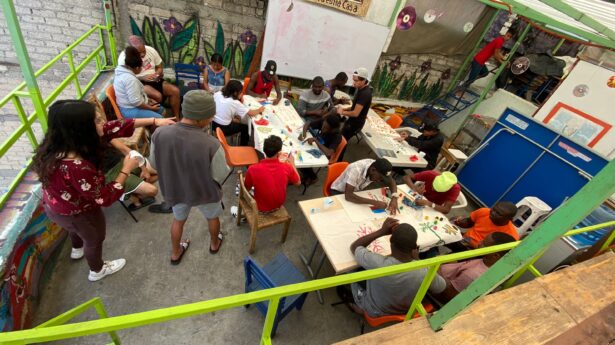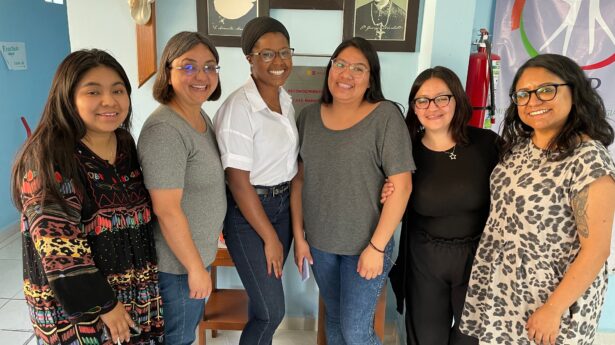The Unitarian Universalist Service Committee advances human rights through grassroots collaborations.
Compassionate Care in a Crisis: Supporting Those in Migration Against Myriad Threats
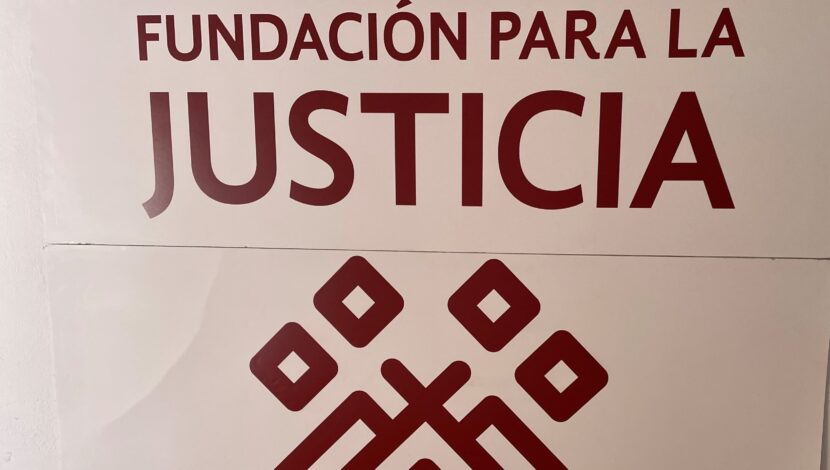
By on August 2, 2023
For people in migration, the biggest threat is that of armed groups who extort, kidnap, rape, and kill individuals passing through the territories they have claimed. This is especially true for individuals migrating through Central America and Mexico. In 2010, 72 people who were on a bus traveling through Mexico towards the United States were kidnapped at gunpoint before being blindfolded, executed, and buried in a clandestine mass grave. This event, known as the Tamaulipas Massacre, resulted in media and government attention as well as community action.
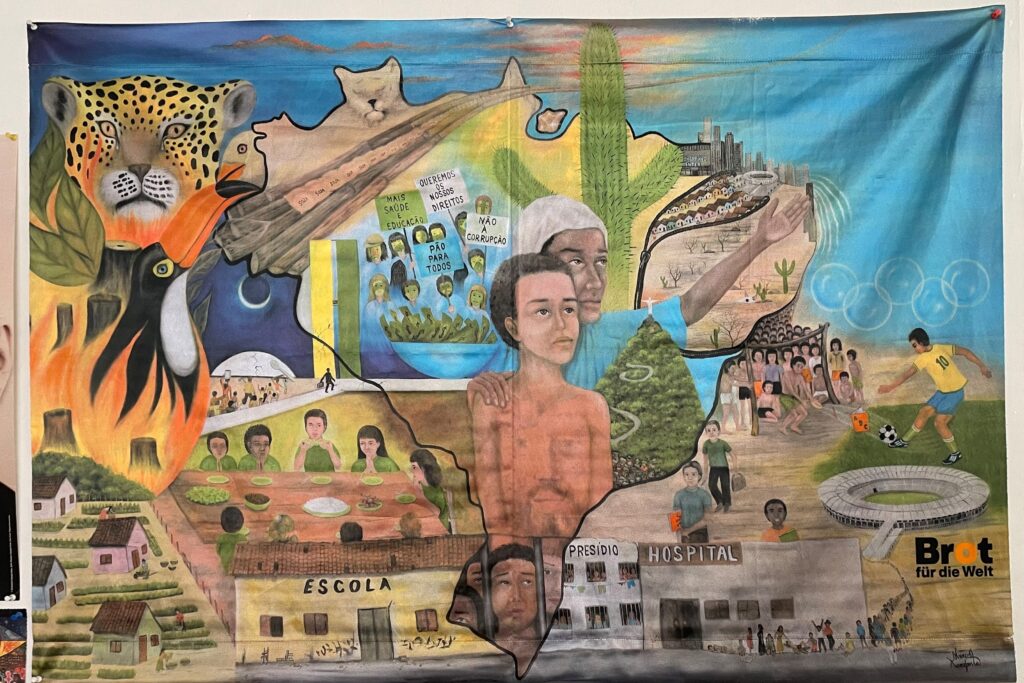
Part of that community action was led by a group of human rights defenders who came together in 2011 to form the Foundation for Justice and a State of Democratic Rights (FJEDD, for its acronym in Spanish). The organization today works out of offices in Mexico City, Guatemala, Honduras, and El Salvador through four axes: addressing grave violations of human rights, advocating for people in migration, combatting gender-based violence (GBV), and developing an independent and effective system of justice for violators of human rights.
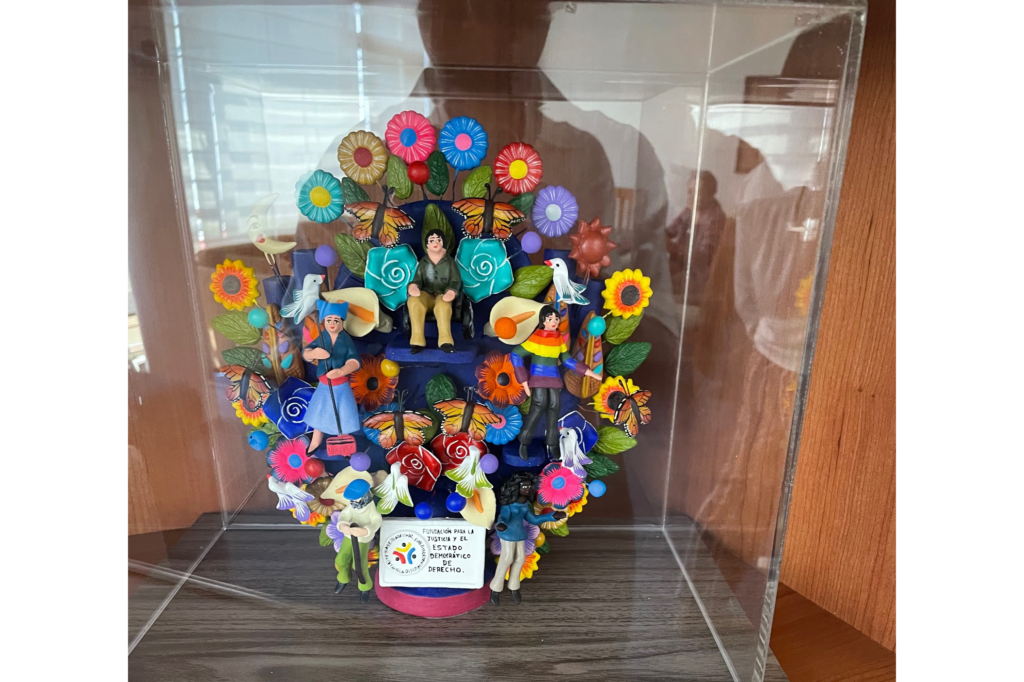
For example, through its work, FJEDD supports people who have not had access to justice through transnational mechanisms and public policy. FJEDD provides individuals with tools to, “report the disappearance of family members and [offers them] search tools to find their family,” explained Maggie Lama, FJEDD’s project officer. She went on to explain that in addition to the support that FJEDD provides to individuals looking for family members, “there is the foreign support mechanism that was created in 2015 that includes embassies and consulates in other countries. Through those embassies and consulates people can file reports. [Before], if a family member of yours disappeared, you did not have ways to access [support] or file a report, and there was a lot of confusion around [what] was the institution responsible for—recording the report or leading the search.”

However, despite the work that FJEDD does, Maggie noted, “none of this can function […] if the institutional processes in Mexico don’t function.” Therefore, FJEDD also works to build the capacity of state actors and institutions that serve migrating people and their families.
Additionally, FJEDD works to address issues of gender in migration. “The theme of gender is not only seen in the cases [of GBV], but we’ve been seeing—not that they’re happening more, just that it’s a bit more visible—cases of migrant women who disappear or who have their rights violated in transit. [We also see] how those disappearances have an effect in terms of gender,” said Maggie. Most of the individuals who provide training on self-care and protection and lead the searches for missing women are women. Furthermore, missing women present particular challenges for families: “many times these women are responsible for their children, and there is also a socioeconomic factor that the impact of the disappearance has [on the family].”

Ciudad Juarez Fire
Most recently, FJEDD supported the survivors of a deadly fire at a migrant detention center in Ciudad Juarez. The fire illuminated the grave human rights abuses faced by people in migration in Mexico.
On March 27, a detainee allegedly set fire to his mattress in protest because he had gone 10 hours with no food or water. This denial of basic needs accompanies multiple reports that the guards of the center made a business out of extorting the inmates, charging them $200-$500 to be released. If the individuals’ families could not transfer the amount into the guards’ personal bank accounts, the detainee would either be transferred to Mexico City for further incarceration or deported back to their home country. In addition to bribes, guards allegedly sold drugs, cigarettes, and lighters at drastically inflated prices to inmates.
On the night of the fire, surveillance video confirms reports that guards simply walked out of the detention center as the flames engulfed the entire male cell block. According to one of the guards on duty, no one had the keys to open the cell doors. The fire resulted in the deaths of 40 people—all detainees.
Following the fire, FJEDD jumped into action to investigate the incident and develop a report on what happened and who to be held responsible. The report—supported by UUSC—will be released before the end of the year and will shed critical light on the injustices and human rights violations carried out by the guards of the Ciudad Juarez detention center. The report will also be an important resource for survivors of the detention center and others like it who have been subject to human rights violations while incarcerated.
UUSC is proud to continue allying with organizations like FJEDD who support the rights of people in migration and who advocate for social justice and accountability. To learn more about FJEDD’s work, visit their website.
Image credit: UUSC
